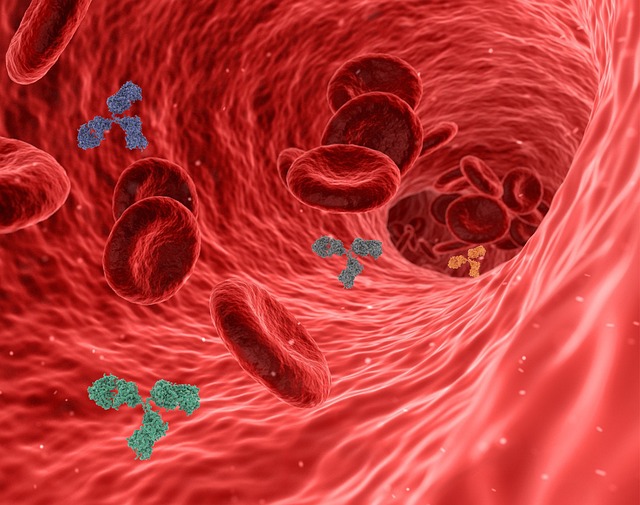Hormonal imbalances affecting men and women in the UK significantly impact reproductive health, with conditions like hypogonadism and PCOS requiring early intervention. The UK Testosterone Blood Test is a key tool for assessing hormone levels, aiding in diagnosing infertility and guiding personalized treatment plans. Advanced hormone analysis technologies, including comprehensive panels detecting multiple hormones, offer accurate diagnoses and improved chances of successful reproduction when interpreted by healthcare professionals.
In the UK, understanding hormonal imbalances is crucial for addressing reproductive health issues. This article delves into the significance of hormone analysis, specifically focusing on testosterone blood tests as a diagnostic tool for male infertility. We explore advanced hormone analysis options, highlighting their role in comprehensive assessments. By examining these methods, individuals and healthcare professionals can navigate the complex landscape of hormonal imbalances, enhancing treatment outcomes and fostering better reproductive health management. Additionally, we discuss the application of UK testosterone blood tests as a key indicator.
- Understanding Hormonal Imbalances and Reproductive Health in the UK
- The Role of Testosterone Blood Tests in Diagnosing Male Infertility
- Advanced Hormone Analysis: Options and Considerations for Comprehensive Assessment
Understanding Hormonal Imbalances and Reproductive Health in the UK
Hormonal imbalances can significantly impact reproductive health, affecting both men and women in the UK. Understanding these imbalances is crucial for effective diagnosis and treatment of underlying issues. In the UK, access to tests like the testosterone blood test has become more widespread, enabling healthcare professionals to assess hormonal levels and identify potential problems early on. This proactive approach is pivotal in managing conditions such as hypogonadism, where low hormone levels can lead to reduced fertility and various health complications.
For men, a UK testosterone blood test might be recommended if there are concerns about low T-levels, which can result in symptoms like decreased muscle mass, fatigue, and impaired sexual function. Similarly, women may undergo hormonal assessments for conditions like polycystic ovary syndrome (PCOS), characterized by irregular periods and elevated androgen levels. Early identification through tests like these facilitates timely interventions, including lifestyle changes, medication, or specialized treatments, ensuring better reproductive outcomes and overall well-being.
The Role of Testosterone Blood Tests in Diagnosing Male Infertility
In the diagnosis of male infertility, hormone analysis plays a pivotal role, with testosterone blood tests being a key component. These tests are essential for evaluating a man’s reproductive health as low levels of testosterone can contribute to infertility. In the UK, a testosterone blood test is a non-invasive procedure that measures the amount of this hormone in the bloodstream, providing valuable insights into potential issues. By assessing testosterone levels, healthcare professionals can identify hypogonadism, a condition where the body doesn’t produce enough testosterone, which may lead to reduced sperm production and quality.
For individuals experiencing infertility, understanding their hormonal profiles is crucial for tailoring treatment plans. Testosterone blood tests help determine if hormone replacement therapy or other medical interventions are necessary. This approach ensures that any underlying hormonal imbalances are addressed, thereby enhancing the chances of successful reproduction.
Advanced Hormone Analysis: Options and Considerations for Comprehensive Assessment
In today’s advanced medical landscape, advanced hormone analysis plays a pivotal role in comprehending and addressing reproductive issues. Beyond conventional methods like the UK Testosterone Blood Test, modern technology offers a spectrum of options for a comprehensive assessment. These include intricate hormonal panels that detect not just primary sex hormones like testosterone but also critical regulators such as estrogen, progesterone, and cortisol. This holistic approach is essential for uncovering intricate relationships within the endocrine system, enabling more precise diagnoses and tailored treatments.
Considerations for these advanced tests are multifaceted. Patient history and symptoms guide selection of specific hormonal markers to be analyzed. For instance, low testosterone levels in men might prompt an assessment focusing on LH and FSH hormones, while female infertility concerns could necessitate measuring AMH and estradiol. Additionally, the choice of test methods—whether liquid chromatography-mass spectrometry (LC-MS) or immunoassay techniques—impacts result accuracy, sensitivity, and specificity, further emphasizing the importance of professional guidance in interpreting these advanced hormone analysis results.
Hormone analysis plays a pivotal role in diagnosing and treating reproductive issues, both in men and women, across the UK. Advanced techniques, such as comprehensive hormone analysis and specific tests like UK testosterone blood tests, offer valuable insights into hormonal imbalances that can cause infertility. By understanding these processes, healthcare professionals can provide tailored treatments to enhance fertility and improve overall reproductive health.
